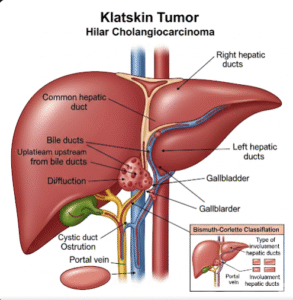Overview
Intermittent Explosive Disorder (IED) is a mental health condition characterized by sudden, repeated episodes of aggressive outbursts or violent behavior disproportionate to the situation. These episodes may include verbal aggression, physical violence, or property damage. IED often results in distress and impairment in social, occupational, or other areas of functioning.
In Korea, awareness of IED is growing, and mental health services are increasingly addressing aggressive behavioral disorders through a combination of psychotherapy, medication, and social support systems.
What is Intermittent Explosive Disorder?
IED involves recurrent episodes of impulsive, aggressive behavior that are out of proportion to any provocation or stressor. Unlike planned aggression, these outbursts are spontaneous and difficult to control. The disorder typically begins in late childhood or adolescence but can persist into adulthood. Diagnosis requires repeated episodes of aggression causing significant harm or distress.
Symptoms
Common symptoms include:
- Verbal aggression such as temper tantrums, yelling, or threats
- Physical aggression towards people, animals, or property
- Episodes lasting less than 30 minutes but occurring frequently
- Feelings of tension or arousal before outbursts
- Relief or release of tension following the aggressive episode
- Feelings of remorse, regret, or embarrassment after the event
Causes
The exact cause of IED is unknown, but factors contributing to its development include:
- Genetic predisposition and family history of aggression or impulse control disorders
- Neurobiological factors such as imbalances in serotonin or other neurotransmitters
- Environmental influences, including exposure to violence or trauma during childhood
- History of head injury or neurological conditions
- Psychological factors like poor stress management and emotional regulation difficulties
Risk Factors
Individuals at higher risk for IED often share these characteristics:
- History of other mental health disorders such as depression, anxiety, or substance abuse
- Exposure to early-life trauma or abuse
- Low socioeconomic status and stressful life circumstances
- Family history of mood or impulse control disorders
- Male gender, as males are diagnosed more frequently than females
Complications
IED can lead to significant negative outcomes, including:
- Legal problems due to violent behavior
- Relationship difficulties with family, friends, and colleagues
- Employment issues and job loss
- Physical injury to self or others
- Increased risk of developing other mental health disorders such as depression or substance use disorders
Prevention
While preventing IED entirely may not be possible, early intervention and lifestyle changes can reduce the severity and frequency of episodes:
- Stress management techniques including mindfulness and relaxation training
- Early treatment of coexisting mental health conditions
- Creating a supportive and safe home environment
- Avoiding substance abuse and promoting healthy coping mechanisms
Treatment Options in Korea
Diagnosis
In Korea, diagnosis is made by psychiatrists using clinical interviews and standardized questionnaires based on DSM-5 criteria. Psychological assessments help distinguish IED from other psychiatric or medical conditions.
Psychotherapy
- Cognitive Behavioral Therapy (CBT) is the mainstay treatment, focusing on anger management, impulse control, and developing healthier coping strategies.
- Dialectical Behavior Therapy (DBT) may be used, especially if IED coexists with mood disorders or borderline personality traits.
- Group therapy and family counseling are also available to improve social functioning.
Medication
Medications may be prescribed to reduce aggression and impulsivity:
- Selective serotonin reuptake inhibitors (SSRIs) such as fluoxetine
- Mood stabilizers like lithium or anticonvulsants
- Antipsychotics in severe cases, under close medical supervision
Social and Community Support
Korean mental health services emphasize integrating patients into supportive community programs, crisis intervention centers, and hotlines to provide ongoing assistance.
Prognosis in Korea
With appropriate treatment, many individuals experience a significant reduction in aggressive episodes and improvement in quality of life. Korea’s expanding mental health infrastructure facilitates early detection and effective management of IED.













